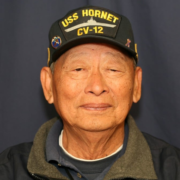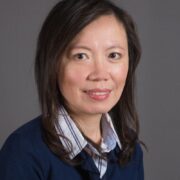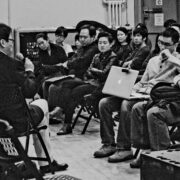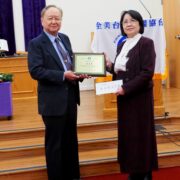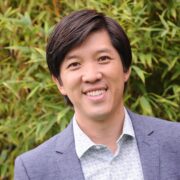王敏昌自傳
作者 王敏昌
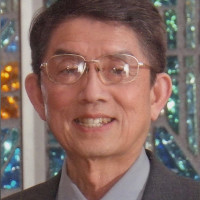 1938年,我出生於今之高雄縣鳳山市.當時鳳山是一個鄕村型的小城鎭,清早可聽到雞鳴,或載貨入城的牛車鈴聲.整個城市只有兩條商店街,長約一二公里.
1938年,我出生於今之高雄縣鳳山市.當時鳳山是一個鄕村型的小城鎭,清早可聽到雞鳴,或載貨入城的牛車鈴聲.整個城市只有兩條商店街,長約一二公里.
我出生的時候,家父王超英正當事業頂峰,擁有木材廠,鐵工廠,家境富裕.
我們的屋子是全鳳山惟一地中海式的洋房.家父出身名門,但年輕喪父,家道中衰,淪爲貧窮,
但他靠著不屈不撓的精神,就讀了東京工業大學,成了台灣人中第一機械工程師.
我常覺得他有如台灣的稀有鳥類,因爲和他同時代的人大都念醫科,法科等等.
家父在關東大地震後,回到台灣,在台北工業學校(今之台北科技大學)執教8年,
然後替高雄陳家經營糖廠,三年後,和朋友唐榮父子及其麵友經營鐵工廠及木材廠.
我上有大姊及二姊,但在我出生前一年二姊因生病被錯誤治療而逝,
所以我之出生帶給王家莫大的欣喜與安慰-以後弟妹陸續出生,這段時期是我家最快樂的時光.
我三歲生日那天,爆發珍珠港事變,一股不祥的陰雲籠罩台灣的天空,家父是工程師,
知道美國工業力量之強大,曰本無法與之抗衡,戰火終將燃至台灣.果然1944 年美國軍機閧始轟炸台灣,造成重大的人和物的損害.1945年,日本投降,戰爭結束,
台灣被交給中國國民黨統治,這正是噩運的開始.中國派來的接收人員素質低落,一群貪官汗吏, 軍隊毫無紀律可言,台灣頓時由20世糸己現代化的社會墜入中國18,19世紀的黑暗時代.
1946年,家父出任台糖旗艦工廠,屏東糖廠的總工程師.他在那裡得罪了許多中國人同事,
因爲他嚴厲督導他們,又阻擋他們貪汙,完全不知道擋人財路乃中國官場大忌.1947年228事件時, 那些中國人官僚就誣告家父,害他被補,還向家母勒索金錢,否則槍繫云云,
可憐吾母畢生積畜耗掉一半,才幸好保住家父一命.半年後,經高雄法院宣判無罪而釋放.以後, 所有台灣人和來台的中國人皆生活在白色恐怖中,受著國民黨的鐵腕統治,
我就在這樣的環境中長大,
我在鳳山念小學,然後六年高雄中學,又在台北就讀於台灣大學.這期間家父在台灣省工業試驗所 (曰治時代的台北中央硏究所)擔任所長,這職務是由當時開明的吳國楨先生派任的.
吳氏與蔣介石不睦而下台,父亦下台,真正的原因是家父不慣於中國官場作風.
1961年,我由台灣大學農業化系畢業,隨後在空軍松山機場服預備軍官役,見識了不少世事,
我們單位,飛行員素質很高,大都是清大,交大等名校讀過書後投筆從戎,値得尊敬,
我和他們相處和諧愉快.
1963年,服完兵役,乃前往CANADA的University of Alberta念生物化學,這家大學,師資不錯,
設備良好,在此讀書受益非淺,尤其印象深刻的是加拿大的人民素質高,有禮貌守紀律,誠實互信, 向圖書借書,不須身分證,只報以大名地址即可借書.他們夜不閉戶,路不拾遺,
禮拜天超市雖不營業,大門卻敞開,任由顧客自由出人任取所須,憑良心付錢.最令人溫心的是, 嚴冬的戶外零下20多度,你寒冷難耐時,大可隨便敲人家的門,請求入屋取暖,主人有時還請你喝杯熱咖啡呢.我本來打算念完碩士後去美國念博士,
但這個地方實在有如人間天堂,戀戀不捨,所以留下來念完博士學位,從出國留學至此.
總共五年半,完成碩士及博士學位
在University of Alberta念的雖是生化,但比較像藥理,硏究的是抗癌藥物的代謝及作用的原理.
離開 University of Alberta 之後,我前往美國 Buffalo, New York的 Roswell Park Cancer Institute 工作, 做的也是有關抗癌藥物的藥理-1975年,我改行轉而硏究前列腺癌的診斷就在這期間,
我發現了PSA (Prostate Specific Antigen前列腺特異抗原),並且策劃及指導手下共同硏究出測量微量 PSA的方法.這就是現今普世使用的PSA Test湔列腺特異抗原的檢驗法>.
1987年,我離開Roswell Park Cancer Institute,轉往工業界做事,此並非吾之所欲也:
但有人要侵占我硏究的成果,實在無可奈何,我的學術生涯就到此爲止.
退休以後,致力於台美人的公益,熱心參加台灣的總統,台北市長及高雄市長,
立法委員等重大選舉的助選及神聖一票,當然也參與美國各項大選的助選及投票,
並且和美國政治人物交流互動,使他們多多瞭解台灣的情況而更加重視及保護台灣的主權.
但願有生之年看到台灣成爲正常的國家.
MING C. WANG
AUTOBIOGRAPHY
I was born in Fongshang in the southern part of Taiwan on December 8, 1938. Fongshang was a small town located about 8 miles east of the biggest seaport of Taiwan, the City of Takao (now called Kaoshiung). Fonshang was then a rural place surrounded by rice paddies and sugar cane fields. The town remained rustic well into 1950s. Our house was only half block from the busiest street of our town. Yet only 100 yards away, there were beautiful rice paddies and sugar cane fields. In the morning, I could hear the crowing of codes and linging of bells of cows pulling oxcarts. At the eastern hilly outskirt of Fongshang, Japanese built a big army camp. It remained to be an army camp after the Chinese took over Taiwan in 1945. But part of it became the army academy and infantry school during 1950s. On Sundays, the town was full of soidiers both in the Japanese and the Chinese times.
My father was a mechanical engineer educated in Japan. I consider him a rare bird among his contemporary Taiwanese intellectuals, for most of Taiwanese intellectuals then were physicians or lawyers. He had taught in Taipei Technical School (progenitor of today’s Taipei Technical University) for 8 years, and then for 3 years worked as a chief engineer and manager of a sugar factory owned by the wealthy Chen’s family of Kaoshiung. When I was born, my had resigned from his job at the sugar factory,and started a business with his friends. The business did well and eventually he and his partners owned two iron factories and a timber company. Our family prospered and enjoyed a comfortable and peaceful life. In 1941,we moved to Taipei because of my father’s business. On my third birthday, Japanese attacked Pearl Harbor. When my fetter learned it, he knew a certain fate would befall on Taiwan. Being an engineer, he knew very well the industrial might and the strength of USA. He knew a dire consequence was in store for Japan, and Taiwan would certainly be affected because it was a part of Japan empire. As he predicted, the war finally came to Taiwan. In 1944, American started to bomb Taiwan day and night One of my father’s partners was killed in a bombing raid. We lived in fear. Foods became scarce and rationed. Any household metals such as guard rails, decorative items had to be handed over to the government to make war materials. Fortunately, the war did not last too long. Japanese surrendered in 1945. The Japanese left, then came the Chinese, and Taiwanese nightmare began. The Chinese bureaucrats were very cornet, their soldiers were undisciplined. The Taiwan people were very disappointed. They disliked and disdained the Chinese who came to take Taiwan.
In 1945, the Chinese confiscated a number of privately owned Japanese sugar lactones, and formed the Taiwan Sugar Corp. In 1946, my father was anointed as chief engineer of Pintung Sugar Factory, the flagship factory of Taiwan sugar Corp. The Chinese were not familiar with the huge modem plantation enterprise (no such thing in China) both in technical and business aspects. That was why he was hired as chief engineer. His new job almost cost his life as will be related later.
Because of his new job, our family moved to Pintung in the southern part of Taiwan. On our way to Pintung, we stopped by Fongshang and stayed in our old house a couple of days. Our house was hit by an incendiary bomb and burned down during tte war but was later restored. It was a Mediterranean style house, one of the two western style houses in Fongshang, and was to be our residence until 1957 when I graduated from Kaoshiung High School. Everywhere in Fongshang I saw the devastation of the war. Some of our neighbors’ houses were destroyed and some neighbors were killed by the bombs.
Shortly after my father started to work in the sugar factory, he found out that his Chinese colleagues were lazy, corrupt and ignorant of their jobs. He did his best to discipline them and prevented their corruption. As a result, those Chinese hated him. Therefore, in the 228 INCIDENT in 1947, he was framed up by his Chinese colleagues and was arrested. Those Chinese threatened my mother from time to time that they would kill my father unless big sum of money was paid. After 6 months in jail, he was finally released after large sum of money was extorted from my family. Half of our family fortune was gone. However, we considered ourselves lucky because, unlike so many of his friends, he was not executed.
After the 228 INCIDENT, we moved back to our Fongsbang house. I attended an elementary schools there, went to Kaoshiung to attend Middle School and High School. While I was busy studying, the world surrounded us had greatly changed, the cold war ensued and the communists were advancing everywhere. The Chinese Nationalists were defeated by the Chinese Communists and retreated to Taiwan. The “‘White Terror” of Taiwan began Freedom was restricted and human right was cast aside. Many Taiwanese as well as Chinese were put in jail or executed. Government spies were everywhere even in schools. Meanwhile I was growing up and developing the ability to observe and think critically. What I saw was disturbing. We lived in an uneasy atmosphere, constantly feared of being arrested or executed because of saying or doing something carelessly. What could then a teenager do under the circumstance except concentrating on his study? Nothing.
In 1957,I graduated from Kaoshiung High School, which was and still is, one of the star high schools in Taiwan. I had received very rigorous academic training and was able to pass the entrance examination to the National Taiwan University. Our family moved back to Taipei again. To me, the university days were the times of enlightenment. I enjoyed relatively liberal atmosphere of our university. I met many outstanding young men from all over Taiwan. In cafeteria and dormitories, we vividly engaged in debates and discussions of varied issues. By listening and participating in conversations with students in various fields of studies, my knowledge greatly expanded. In my sophomore year, a College of Art student recommended to me a book written by philosophy professor Yin Hai Guang about dear thinking. After reading the book, I learned how to think clearly without being clouded by preconception, sentiment, religious or political dogma, and not to be interfered by conflict of interest. I started to question old values as well as what the government told us. I became more and more aware of oppressive nature of our government. I yearned for freedom and longed for living in a country such as Canada or USA where I could read whatever I wished to read and say anything l liked to say without being persecuted. I wished to live in a place where I would not have to tolerate over the remarks such as “Taiwanese have slavish nature
cultivated by Japanese^ or ^Taiwanese are superstitious, stupid, coarse country bumpkins, etc. and would
not have to be afraid to protest. The longing for freedom and dignity was one of the reasons I immigrated
to North America later.
As to the education I received in the class room, I was quite disappointed. Most of our professors then had never gone to graduate school, their knowledge was limited Their teaching skill poor. Some of our professors, in my view, were lazy. They did not keep their knowledge up to date. (5f course,there were excellent teachers, our analytical chemistry professor was one of them; but they were minority. In addition, our laboratories were poorly equipped; many equipments were leftover items from Japanese era before 1945 and were poorly maintained. It was hard to imagine that the National Taiwan University was once a sole research university of Japan empire. The Nationalist Chinese government spent too much money on military, and was stingy on science and education during 1950s. Poor facilities of science and technology departments in our university were results of such policy.
Ever since I was a young boy, I had aspired to be a scientist because of my curious nature and the influence of my father. When I was a student in the National Taiwan University,only a few departments had graduate study program which offered master degree only. I knew that, if I wanted to receive good research training in order to be an outstanding scientist, I had to go to the scientifically advanced countries.
After graduated from the National Taiwan University in 1961 with Bachelor of Science degree in
Agricultural Chemistry, and a year of mandatory military service, I went to Edmonton, Alberta, Canada to
study biochemistry in the University of Alberta. Thus began a new chapter of my life. I was much
impressed by the immense land and well planned city. The environment was clean just like Taiwan in the
I the Canadians were law-abiding, as seen in their strict adherence to the traffic laws and to the unwritten courtesy rules. I was most impressed at the trust people bestowed on each other they did not lock car doors and house doors. They allowed strangers into their houses to get warm in the extremely cold winter night; I could borrow books from the university library just by giving my name and address without being asked to show identification. I felt this land was an ideal place to live and study.
The facilities of University of Alberta were excellent. Many modem equipments were readily available for me to use. As to the teaching skill of professors in class room, it was generally good although not up to my high standard. Our professors,knowledge was up to date. They provided us with latest scientific information. I originally planned to go to US to continue Ph.D degree program after finishing master degree program in Canada. But I changed mind and stayed on to pursue Ph.D degree. I received master degree in 1966 and passed the Ph.D thesis examination in January 1969. Thus ended my student life. During the five and half years in Canada, I had married and had a son. Sadly, my mother was not able to see her grandson because she passed away in 1967.
After I finished studies in Canada, I went back to Taiwan to see my father. I was quite appalled by the situations in Taiwan; the air and water were polluted, city traffic was a mess, the Chinese bureaucrats treated people like servants. Worst of all, iron hands of dictatorial regime were firmly gripping Taiwan. I could not see any hope of improvement to the grim situation in Taiwan in the near future. This further strengthened my resolve to live in a free and democratic country for good
In February of 1969, we left Taiwan for US. My father came to the airport to see us off. It was the last time I saw him alive. In July of 1970, my daughter was born. My father was very happy that Wang’s family had a new comer. But he never saw her because he passed away that December.
In US,I worked for Roswell Park Cancer Institute in Buffalo, New York. The institute,established in 1898, is the first cancer hospital in the world dedicated to cancer treatment and research and had gained high reputation since its establishment. At the time I joined the institute, it had been an organization of New York State Government.
In the first few years, I studied anticancer drugs, and I had contributed in small way to the understanding of how some anticancer drugs worked. I then switched my interest to immunodiagnostic area. My most significant contribution during my stay in that institute was the discovery of prostate specific antigen (PSA) and development of PSA test for detecting prostatic cancer. PSA was originally approved by FDA as a tool for monitoring treatment effect and progression of the cancer. It was approved later for screening apparently healthy adult male population in the hope to detect the cancer early. Utilization of PSA test as a screening tool for detecting prostatic cancer is now quite popular. There is an ongoing long term and large scale study of its usages by National Cancer Institute. I consider the fact that PSA test worth their study is my accomplishment and contribution to the medical communities throughout the world.
Although I am one of the three inventors of the PSA test patent in US and Canada, and the sole scientist in charge of the PSA project, for the reasons too complicated and unpleasant to detail, I have not received due reputation from my work; all awards were given to someone else not involved in the experimental works.
While I was wrapped up in doing research, our children were growing up. They attended primary and secondary schools in the suburb of Buffalo where we lived. Compared with the education at similar levels in Taiwan,their school curricula were more relaxed. This was exactly what we wanted for our children. We did not want them to engage in cut-throat competition like we did in the entrance examinations at every level of education. Our children played a lot but also studied very hard. Years passed by and before we knew it, our son graduated from high school and left home to attend Cornell University which was four hours driving distance away. To live in a dormitory and study in a private university cost much money. Like our parents had done for us before, we sacrificed ourselves, cut down the daily expenditure, took out our savings to support my son’s education. Our daughter also was rapidly approaching college age. Just when she finished junior year in high school and was one year short of entering the college, m} grant which supported me was expired. Losing grant at this critical time had a serious impact on m> career. Although I had been a senior staff member of our institute,I was not holding a permanent “State” job; I belonged to the Institute’s Health Research Corp. Division^ which was supported by “soft money” such as grant or find new sources of money to support me, but such prospects were not matters of certainty. Meanwhile, there was an urgent matter of supporting my children’s education, I could not afford spending our savings and waited for the uncertainty. Therefore, I had to look for job opportunity elsewhere. At my age of 48, finding another academic job without my own grant was not easy. Fortunately, I found a job in industry and thus ended my academic career.
It was all the bad luck and bad timing. Although I invented PSA test, at the time I left Roswell Park Cancer Institute, the value of PSA test was known only to few people. As the value of the test was not appreciated yet, how could I get a grant? PSA test became well known and widely used couples of years after I left the institute. Had it become popular earlier, I would have asked the institute to use just a small fraction of tens of millions of dollars of patent royalty income the institute received to support me. I also could have negotiated a “State” position for myself- I would also have better chance of getting National Institute of Health grants.
The popularity of PSA test came too late, and I ended my academic career much sooner than I expected. In the next several years, I worked for biotech firms in the west coasts. I constantly entertained the idea of going back to academic field or starting a biotech business of my own to finance my research. However, my wish had never been fulfilled. I am not at all a loser, though. Per New York State Government^ rule, I received a fraction of the PSA patent royalty income which became substantial many years after I left the institute. This has afforded us a comfortable living without physically working by the time we retired.
In 1994, I suddenly had heart ailment. I thought I was going to die. Although cardiologist assured me that my ailment (a form of arrhythmia which is called atrial fibrillation) was not fatal, he warned me that I might get a stroke if the fibrillation lasted too long. This ailment made me reflect my life. I believed I got this heart problem because of 25 years of stressful life, working 60 hours a week constantly worrying about losing grants or job, often angry about injustice done to me in the work place, such as publishing my experimental results by department head and institute director without my permission and without even bother to acknowledge the experiments were done by me. I started to wonder whether it was worthwhile sacrificing family life to work late into the night or working on weekends just to maintain the status as a scientist. As arrhythmic attack became more and more frequent, I decided that I should retire. So, in 1995,1 ended my career as a scientist after 26 years of working.
Now, we no longer have to support our son and daughter financially. Our son is now a physician specialized in anesthesiology and our daughter is a marketing consultant. Both of them are doing much better than I was at the similar age. I feel relieved. We now lead a relaxed and peaceful life in southern California.
After living in US for 40 years which is 15 years longer than the time I lived in Taiwan, I became more used to the life in US than the one in Taiwan; but Taiwan, my motherland, is always my love and concern. I firmly believe that because of strategic position of Taiwan, the interest of Taiwan is the interest of US. Therefore, we have been engaged in political activities both in Taiwan and US, hoping that both countries will be more prosperous and secure.
Many Taiwanese-Americans have gone back to Taiwan to live after decades of living in US, just like wild geese or salmon returning to their places of birth after going away to distant places for a period of time. My wife and I are not wild geese or salmon, we are like coconuts drifting in ocean to a distant shore, taking roots there, growing into trees, and helping that distant land more beautiful, interesting and lively.
Source from 王敏昌

